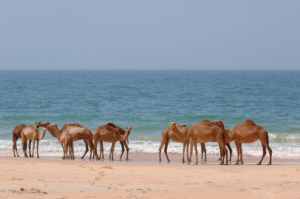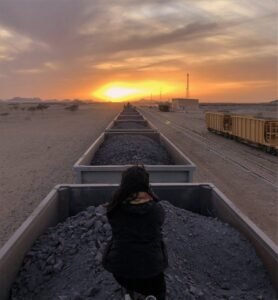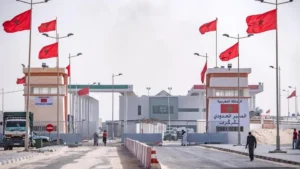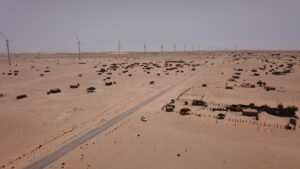Are you about to leave for Nouadhibou and have a thousand questions on your mind? What currency should you use? How to make yourself understood? How to dress in Nouadhibou? Don’t panic, we’ll guide you!
At Hôtel Prestige, we know Mauritania inside out. In this article, we share 10 essential tips to help you prepare for your trip with peace of mind. Concrete advice, local tips and our best recommendations for a stress-free stay.
Ready to find out everything you need to know before you leave? Here are 10 key tips for a successful trip to Mauritania!
1. Entry formalities
Before you can set foot on Mauritanian territory, you’ll need to complete the entry formalities: visa, passport, insurance, we tell you everything.
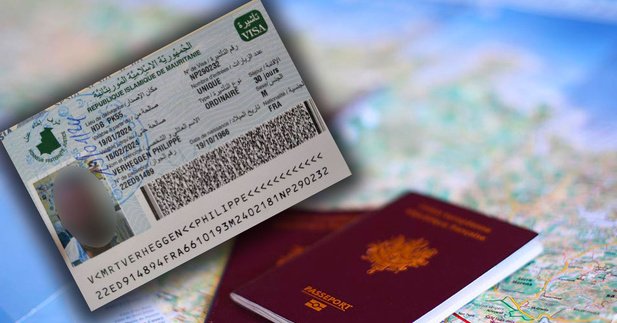
New visa rules
Since January 8, 2025, we strongly recommend that you apply for your visa online before your departure via this link: Mauritania visa application.
No more long waits on arrival! The Mauritanian government has set up this digital process to streamline entry into the country, sparing travelers up to 2 hours waiting at visa offices. Although obtaining a visa at the airport is still possible, it is becoming more uncertain. Expect to pay around €60 for a 30-day visa, and remember to apply at least 15 days before departure for peace of mind.
Apply for your visa online now on the official website: Mauritania visa application.
Passport: don’t be turned down!
Although this applies to many countries, it’s worth remembering that your passport must be valid for at least 6 months after your date of entry, and have a blank page for stamping.
Vaccines: prevention is better than cure
Good news for the intrepid: no vaccinations are required to enter Mauritania! However, some vaccinations are highly recommended, especially if you plan to get off the beaten track:
- Yellow fever: A must if you come from a high-risk country.
- Hepatitis A and B, typhoid: Recommended for longer stays or in remote villages.
- Malaria: Present mainly in the south, along the Senegal River. Preventive treatment may be a good option for the more far-sighted.
Travel insurance: added security
It’s not compulsory, but in Mauritania it’s almost essential. In a country where access to healthcare is limited, especially in remote areas, good travel insurance can make all the difference. It must cover medical expenses, hospitalization and repatriation, which can quickly become complicated without assistance.
You should also check whether the credit card you used to buy your tickets includes cover for delayed flights and lost or stolen luggage. Be sure to read the conditions carefully, because in the event of a problem, this can really save your ass. We wouldn’t wish it on you, but it’s best to be prepared for any eventuality!
🔗 Useful links to help you plan your trip
Official website of the Mauritanian government
Travel advice – French Ministry of Foreign Affairs
International vaccination centers
2. Currency and payments
Let’s get down to brass tacks: money! What currency should I use? Can I pay by card? In Mauritania, the local currency is the ouguiya (MRU), and a word of advice: don’t rely too much on your bank card. Cash is king here, so it’s best to carry some with you at all times!
The ouguiya (MRU)
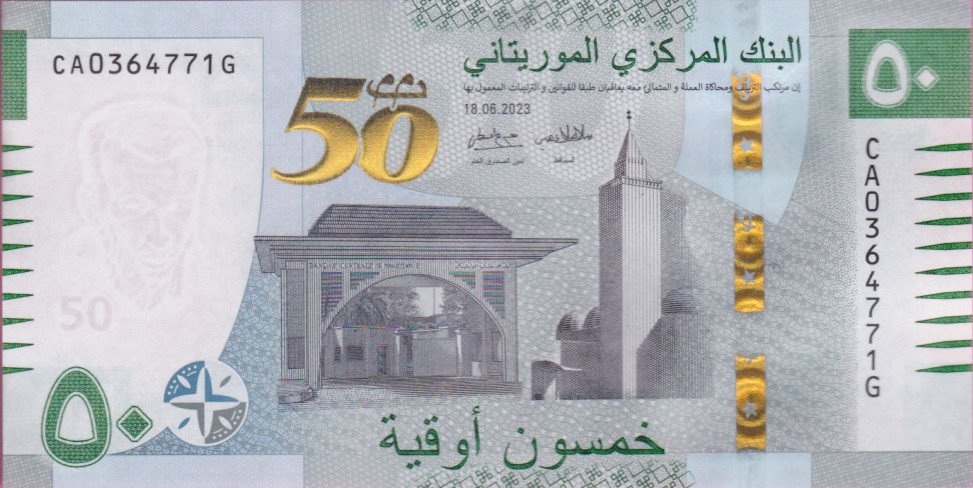
To give you a guide, €1 is equivalent to around MRU 40 and $1 to MRU 35. Rates fluctuate, so be sure to check before you leave. Here’s a handy tool: Real-time currency converter. In circulation, you’ll find coins from 1 to 20 MRU and banknotes from 50 to 1,000 MRU.
Watch out for the currency change! Since 2018, the ouguiya (MRU) has replaced the old currency (MRO) with a conversion rate of 1 MRU = 10 MRO. Yet many retailers still advertise their prices in MRO. Always ask whether the amount given is in MRU, as a single zero too high can seriously impact your budget!
Good to know: The ouguiya is a non-convertible currency, which means you can only exchange it in Mauritania. So remember to change your money before you leave the country, as you won’t be able to do so elsewhere!
How to obtain ouguiyas
You can exchange your currency as soon as you arrive at the airport, but exchange offices in town often offer better rates. As for the black market, present at border crossings for example, some people get their money’s worth… and others get ripped off. It’s best to avoid the hassle and go through a bank or an official bureau, such as Société Générale, where transactions are secure and rates more reliable.
On the other hand, forget the bank card for everyday use. With the exception of a few large hotels and high-end agencies, everything is paid for in cash. There are cash dispensers in Nouakchott and Nouadhibou, but they are capricious: between power cuts and network problems, they can leave you stranded at the worst moment. It’s best to withdraw enough when you arrive, and let your bank know before you leave, to avoid any unpleasant surprises.
And above all, keep some change on you! In Mauritania, paying in large denominations can quickly become a headache, especially in cabs or small shops.
Tips: a gesture that’s always appreciated
In Mauritania, tipping is not obligatory, but it’s always a pleasure. It’s a simple way of thanking good service and adding a touch of generosity to your exchanges.
In restaurants and hotels, you can simply round off the bill. For guides and drivers, a small bill at the end of the service is always welcome, especially if you’ve had a good time.
A small gesture for you, but one that can really make a difference for them. 😊
In a nutshell
A well-prepared trip means less hassle on the spot. Cash is king here, so be sure to withdraw cash in advance, and always keep small-denomination notes to hand.
Need a good plan? The Hôtel Prestige team can show you the best places to change your money safely.
🔗 Useful link: Real-time currency converter
3. Languages spoken and a few useful words
In Mauritania, we juggle Hassanya Arabic, French and a mosaic of dialects, often in the same conversation. There are no clear-cut barriers; everything mixes together, and that’s what makes the exchanges so charming. With a few well-chosen words, you’ll quickly go from simple traveler to welcome guest. Here’s how to make yourself understood without looking lost.

The Mauritanian version of Arabic
In Mauritania, we speak Hassanya, a unique Arabic dialect, quite different from those of Morocco, Algeria or other Maghreb countries. Unlike Maghrebian Darija, which has incorporated many Berber and French words, Hassanya is one of the closest dialects to literary Arabic, with clearer pronunciation and a vocabulary less influenced by other languages.
If you know classical Arabic, you won’t have too much trouble making yourself understood. And for a good start, remember “As-salam alaykum” to say hello and “Shukran” to say thank you. Two words that open many doors!
French, a heritage… but not a guarantee
Mauritania may have been a French colony, but French is not everywhere. It is still used, but its importance varies from place to place and from generation to generation.
In Nouadhibou, formerly Port-Étienne, it’s more common, especially among the older generation and in certain shops. But as soon as you leave the big cities or venture into the markets and villages, it’s best to have some knowledge of Arabic… or rely on gestures!
Peul, Soninké, Wolof: a diversity that can be heard
In Mauritania, Arabic and French are not the only languages spoken. The country is a crossroads between North Africa and sub-Saharan Africa, and this position is also reflected in its languages. Fulani, Soninke and Wolof can be heard here, especially in the south, but also in the big cities where these communities are well represented. These languages are spoken by historically nomadic peoples, both traders and farmers, who have shaped the country’s multicultural identity.
A few phrases to make yourself understood
- Hello: As-salam alaykum (السلام عليكم)
- Thank you: Shukran (شكراً)
- How much does it cost?: Bech’hal hada? (بِشْحَالْ هَادَا؟)
- I don’t understand: Ma fhemt-sh (مَا فْهَمْتْش)
- It’s good / delicious: Zeen (زِين)
Here, a few words are often enough to break the ice. An “As-salam alaykum” to greet, a “Zeen ” to compliment a dish, a smile and a “Shukran” to thank… and you’ll see, exchanges immediately become warmer!
4. Health & safety: be prepared
Travelling in Mauritania means real adventure. Awe-inspiring landscapes, unforgettable encounters… but also a few unforeseen events if you’re not at least a little prepared. Between the climate, the distances and the limited access to medical care, it’s best to plan ahead to avoid any problems. Here’s what you need to know to leave with peace of mind.
Health & hygiene: a few reflexes to adopt
Here, we avoid tap water. Drink only sealed bottled water, and say no to ice cubes or raw vegetables rinsed in tap water. When it comes to food, the same vigilance applies: opt for cooked vegetables and well-cooked meat, and wash fruit thoroughly before eating. And for sensitive products such as yoghurts, milk or mayonnaise, beware… the cold chain is not always respected.
As far as the climate is concerned, the sun is no picnic, especially in the desert. A hat, sun cream and a bottle of water with you at all times is the minimum to avoid heatstroke.
In your first-aid kit, remember the essentials: antidiarrheals (the change of water can be tricky), painkillers, bandages and, of course, your personal medicines in their original packaging with prescription.
And don’t underestimate mosquitoes, especially in the warmer months. A good repellent quickly becomes indispensable.
Safety: staying vigilant, but not paranoid
In Mauritania, you’ll generally feel safe, but as everywhere, there are places to avoid. Areas close to the borders with Mali and Algeria are not recommended, so it’s best to find out before planning an itinerary in these regions.
When it comes to money, there’s no need to take a large sum in cash. Just take what you need for the day, and keep the rest in a safe place. The same goes for jewelry, smartphones and cameras: there’s no need to flaunt them everywhere, especially in crowded places.
At night, some streets can be deserted, especially off the main thoroughfares. If you need to get around, you might as well take a cab.
And if you’re in any doubt about a particular route or area, the Hôtel Prestige team can always give you some good advice on how to get around with peace of mind.
5. Climate & clothing: what to pack?

Mauritania’s climate is like a yo-yo: sweltering hot during the day, sometimes surprisingly cool once the sun goes down. You don’t always realize it, but the temperature differences can be marked, especially in the desert.
Here are our tips for packing intelligently: have everything you need, without cluttering up your suitcase with unnecessary items.
Extreme weather… but manageable
In the desert, the thermometer can climb to 40°C during the day, especially between May and October, before dropping sharply to around 15°C at night. The range is huge, so be prepared to go from hot to cool in a matter of hours.
On the coast, particularly in Nouadhibou, the Atlantic moderates things a little. Days oscillate between 20 and 30°C, but the wind can be surprising: sometimes pleasant, sometimes icy, especially in the evening.
The ideal suitcase: lightweight, practical and no-frills
For the sun, a hat, sunglasses and a good SPF 50 sun cream are essential. Here, the sun hits hard, especially in the middle of the desert.
For the evenings, bring a sweater or light jacket, especially if you’re going on an excursion. Temperatures can drop quickly after dark.
When it comes to clothing, opt for light, breathable materials like cotton or linen. Ample is better: more comfort and less heat build-up.
What about shoes? A pair of comfortable sneakers for the city, sandals for the beach and closed-toe shoes if you’re going to be trekking in the desert.
👉 A little extra: A scarf or chèche can save your day. It protects you from the sun, wind and sand… and even serves as an improvised pillow if you need it!
Hydration: never leave home without
Whether water bottle or gourd, the most important thing is to always have one with you! In Nouadhibou, bottled water is easy to find, but when you’re out and about, you need to bring enough. With the heat and dry wind, you’ll dehydrate faster than you think.
Not sure what to bring? The Hôtel Prestige team is there to help you plan your stay according to the weather and your activities.
6. Traditions, culture & pace of life: what you need to know
In Mauritania, exchanges are warm and nothing is done in a hurry. A greeting is not just a “hello”, but a real moment of exchange. Tea, for its part, is never drunk in a hurry: it’s shared, quietly, sometimes for hours on end.
Adapting to local customs means soaking up the country’s rhythm, understanding that not everything happens by the minute. Respecting these codes means integrating naturally, without forcing yourself. A few points of reference are all you need to avoid any faux pas and fully appreciate everyday Mauritanian life.

Politeness & respect: what you need to know
In Mauritania, religion is part of everyday life. Mosques are places of worship to be respected, and during Ramadan, eating, drinking or smoking in public can be frowned upon. No one will tell you anything, but out of respect for those who are fasting, it’s better to do it in private.
Here, greetings are not hurried. Saying “As-salam alaykum” on entering a room or before starting a conversation is a sign of respect. An exchange always begins with a greeting, and taking this time is essential in the local culture.
When it comes to clothing, revealing outfits are the norm, especially for women. Shorts and very short tank tops are eye-catchers, so it’s best to be aware of this before packing your suitcase.
And for couples, public displays of affection are rare. Here, we keep it private, but it’s not a strict rule, just a culturally ingrained habit.
Prayer times: a rhythm to adopt
Five times a day, the call to prayer sets the tempo and life adapts. Stores close briefly, the streets become quieter… but everything picks up again quickly afterwards.
Daily life naturally follows this rhythm. Mornings are busy, followed by a break between 1pm and 3pm, often around lunch and midday prayer. In the late afternoon, activity picks up again, before slowing down for evening prayer. It’s especially after 6pm, once the heat has died down and the last prayer before nightfall is over, that the streets really come alive.
If you’re invited to someone’s home, it’s best to wait until prayer is over before knocking on the door. Generally speaking, we also avoid disturbing or passing in front of someone in the middle of prayer, a mark of respect that is part of our daily routine.

7. Mauritanian cuisine: flavors and sharing
Halfway between North Africa and sub-Saharan Africa, Mauritania is a melting pot of influences. Desert spices, nomadic traditions, fresh fish from the Atlantic… every meal tells its own story.
Unparalleled Mauritanian hospitality
But here, eating is also a moment of sharing and conviviality, reflecting a sense of community. Everyone sits together in a circle around the same dish. And we always plan a little extra… in case a surprise guest happens to drop by. Refusing an invitation to eat? It’s almost unthinkable, since the pleasure of hosting is so much a part of our culture.
A little rule to keep in mind: we eat with our hands, but everyone stays on their own side. Picking up from the neighbor? Not a good idea, unless you want to attract intrigued glances!
Here are the unmissable specialities of the Mauritanian table…

Typical dishes not to be missed
In Mauritania, cooking is all about sharing flavors. Slowly simmered dishes, spices that perfume the air, and the habit of eating all together from the same plate without ever letting anyone go home hungry.
Tchiboudjen is THE national dish. Fresh grilled fish, rice soaked in a fragrant tomato sauce, vegetables simmered in it… A perfect balance between land and sea.
If you’re more into meat, bonava is a mutton stew slowly simmered with spices and potatoes. Hot and full of flavor, it’s the perfect break after a long day of desert trekking. Even more delicious, mafé coats rice and meat in a creamy, flavorful peanut paste sauce. Impossible not to sauce the plate.
Mauritanian couscous also has its own particularity. Here, the seeds are rolled by hand, and are more granular and airy than those from the Maghreb. Served with mutton or chicken and accompanied by a fragrant broth, it has that unique taste of homemade know-how handed down from generation to generation.
Then there’s yassa, a dish with Senegalese influences. Chicken marinated in a lemon and onion sauce, melt-in-your-mouth, tangy and slightly spicy. A blend of flavors that makes a refreshing change from spicier dishes.
And after every meal? There’s no escaping mint tea. More than just a drink, it’s a ritual that marks the end of a meal… and prolongs the moment of sharing.
Mint tea, more than just a drink
In Mauritania, mint tea is a ritual. It’s not drunk in a hurry between two activities; it’s prepared slowly, with patience and precision. Served in three glasses, each one has its own meaning:
1st: Bitter as life 2nd: Strong as love 3rd: Sweet as death
We pour it from above to create the perfect froth, adjust the sugar to find the right balance, and above all, we savor it by taking our time. Here, tea is a chance to chat, catch up on old times and extend the moment of sharing after a meal. It’s hard to resist… and frankly, why not?

Where to eat in Nouadhibou
Nouadhibou has it all. On the main boulevard, several restaurants serve European-inspired dishes, revisited with local products. But for a taste of real Mauritanian cuisine, it’s best to venture a little further afield.
Small local restaurants are a sure bet for simple, tasty meals at low prices. To find the best addresses, ask the Hôtel Prestige team– we know all the tricks!
For total immersion, head for Nouadhibou’s central market. With the smell of spices, colorful stalls and bustling vendors, it’s the perfect place to sample local specialties in a lively atmosphere.
And for fish lovers, there’s nothing like a tasting session on a fishing trip. Grilled trout, freshly caught, cooked directly in a traditional oven… A taste of the fresh, the simple, the real!
8. Shopping & local purchases
When you go shopping in Mauritania, you quickly notice that prices are never fixed. Here, everything is negotiated, whether it’s a souvenir or everyday shopping. With a little patience and the right frame of mind, you’ll walk away with some real nuggets… without getting ripped off.
The art of haggling
The first price advertised is rarely the right one. Offering half is a good starting point, but it’s all about attitude. Smile, talk, take your time… and above all, don’t show too much enthusiasm. If you like an item too much, the salesperson will sense it and play on it so as not to lower the price too much.
To avoid being taken for a ride, nothing beats the advice of a local. They know the real prices and can give you a good idea before you start negotiating. The Hôtel Prestige team can also advise you on what is available in Nouadhibou. If you’re accompanied by a Mauritanian, it’s even better: the seller will be more inclined to offer a fair price from the outset.
Where to shop in Nouadhibou?
Keyran’s central market is the best place to find food, spices and products from Senegal, Mali and Côte d’Ivoire. The atmosphere is lively, the stalls bursting with color and the smell of spices wafting through the air.
Fruit and vegetable vendors are concentrated around the boulevard médian. Among them, Alioune is a sure bet for a good selection at good prices.
The cooperatives of the artisanal market, at the entrance to the Socogim district, are the ideal spot to bring back an authentic souvenir. Whether silver bracelets, gold rings, leather wallets or palm fiber objects, everything is handmade and reflects local know-how.
9. Getting around Mauritania: instructions for use
In Mauritania, getting around town is often done on foot, especially outside the capital, where everything is within walking distance. But as soon as you need to cover a few kilometers, cabs quickly become indispensable. In Nouakchott, a network of municipal buses is beginning to emerge, offering an alternative still in its infancy. And if you want to venture off the beaten track, a 4×4 is almost always the way to go. Each option has its own charm… and its own challenges! Here’s everything you need to know to get around stress-free.
Cabs: the simple, efficient option
In Nouadhibou, cabs reign supreme. From 6 a.m. to 10 p.m., they criss-cross the city’s main roads. The most professional taxis are easy to spot thanks to their flashing lights or their emblematic yellow and green bodywork. Here, there’s no need to wait for an empty cab: a simple wave of the hand is enough, even if three or four passengers are already on board… there’s always room for one more!
There’s no meter on board! Before getting in, always negotiate the fare with the driver. In Nouadhibou, the average fare is between 10 and 50 MRU, depending on distance and distance from the main roads. It’s best to agree on the price from the outset to avoid unpleasant surprises!

Coaches and minibuses for city-to-city travel
After enjoying Nouadhibou, why not discover the capital, Nouakchott? Air travel with Mauritania Airlines is one option, but the most accessible is by coach or minibus.
In terms of overland transport, several companies operate between Nouadhibou and Nouakchott, but most do not have a fixed timetable. To avoid unpleasant surprises, we recommend the minibuses of 1ère Classe, renowned for their recent vehicles and their fixed departure times (7.45 a.m. and 4 p.m.). Their station is a 10-minute walk from the Hôtel Prestige.
A word of advice: take water with you before you set off, as stops en route are rare and not always practical for refueling.
Rent a car: for adventurers
If you want to explore at your own pace, renting a 4×4 is an excellent option. But driving here is quite an adventure.
As soon as you leave the cities, forget about asphalt. The roads are often sandy, full of potholes and sometimes non-existent. Without a good vehicle, you won’t get very far.
As far as papers are concerned, an international driving license is sometimes required. Check before you rent, to avoid unpleasant surprises at the counter.
And if you’re planning to drive off the main roads, it’s best to be well equipped. GPS, spare wheel, shovel… Small details that can save you a lot of trouble in the middle of the desert.
Don’t know where to rent? The Hôtel Prestige team knows all the right places and can guide you to the most reliable agencies.
10. Landscapes & must-do activities
Mauritania’s landscapes are a feast for the eyes. Endless deserts, wild coastlines, towns steeped in time and steeped in history… Here, everything invites adventure. Are you ready to experience intense, authentic moments? We’ll take you there.

The desert: a sea of sand as far as the eye can see
If you like a change of scenery, the Adrar is the place for you. Dunes as far as the eye can see, absolute silence, just the wind and the light changing with the day. Imagine yourself on a camel or in a 4×4, with golden sand as far as the eye can see. And at night, under a starry sky, it’s just magical.
The Banc d’Arguin, a UNESCO World Heritage site, is another sight to behold. This is where the desert meets the ocean. Here, you can observe colonies of migratory birds and encounter dolphins along the deserted beaches. A real pleasure for lovers of unspoilt nature.
The coast: beaches and fishing
Nouakchott’s beach is perfect for a stroll along the Atlantic coast. Be warned: swimming can be risky because of the currents, but there’s nothing to stop you enjoying the sea air and spectacular views.
In Nouadhibou, if you like fishing, you’ll love it. Here, we fish like we breathe. Try a trip out to sea with the local fishermen and taste the freshly grilled fish right after you’ve caught it. A simple but memorable experience.
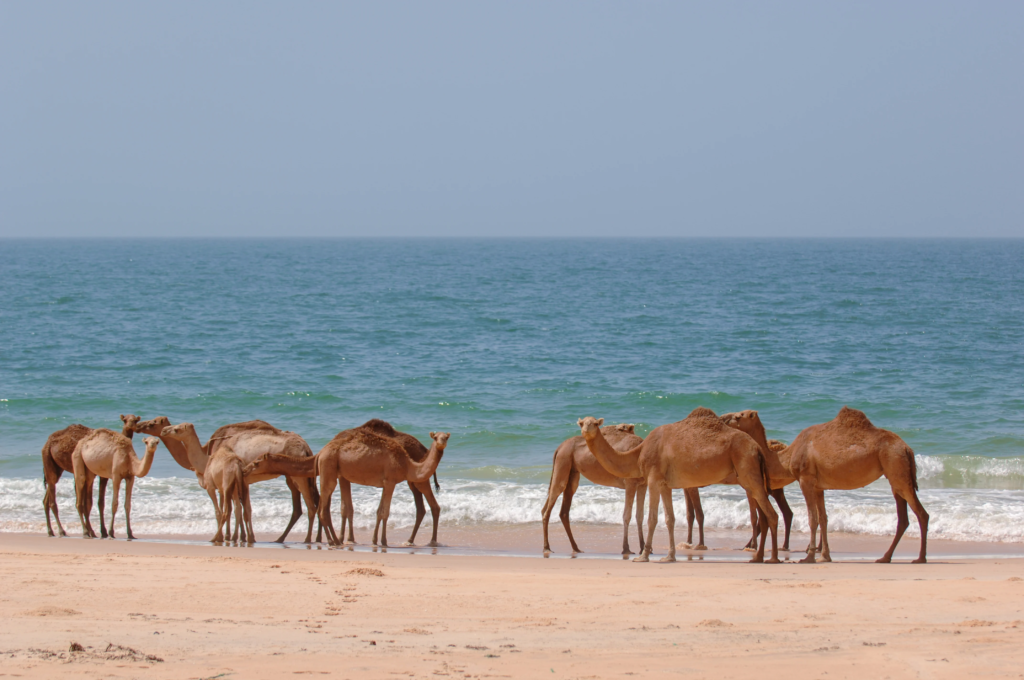
Excursions & discoveries
Don’t miss the caravan towns of Chinguetti and Ouadane. These are pieces of history frozen in time. Imagine yourself in these stone streets, surrounded by old libraries, in an extraordinary atmosphere. It’s like stepping back in time several centuries.
Further north, the Fdérik mines offer a surprising spectacle. A lunar setting, mountains of iron as far as the eye can see. It’s fascinating to see this industrial activity in the middle of the desert. If you’re curious, it’s well worth the detour.
And what better way to end the day than with a campfire under the stars? A steaming mint tea in your hands, the silence of the desert all around you… Here, time stands still, you’re somewhere else, in a raw and wild setting, perfect if you like wide open spaces far from everything.
Looking for advice or a well-organized excursion? The Hotel Prestige team knows the best plans and takes care of everything so you can enjoy the experience stress-free.
Focus on Nouadhibou: The pearl between desert and ocean
Nouadhibou is where the desert meets the Atlantic. On one side, the immensity of the dunes. On the other, the wild waters of the ocean. In between, a vibrant town where life is organized to the rhythm of lively markets, fishermen returning to port and long evenings spent chatting over tea. Ready to discover? We’re ready to go!
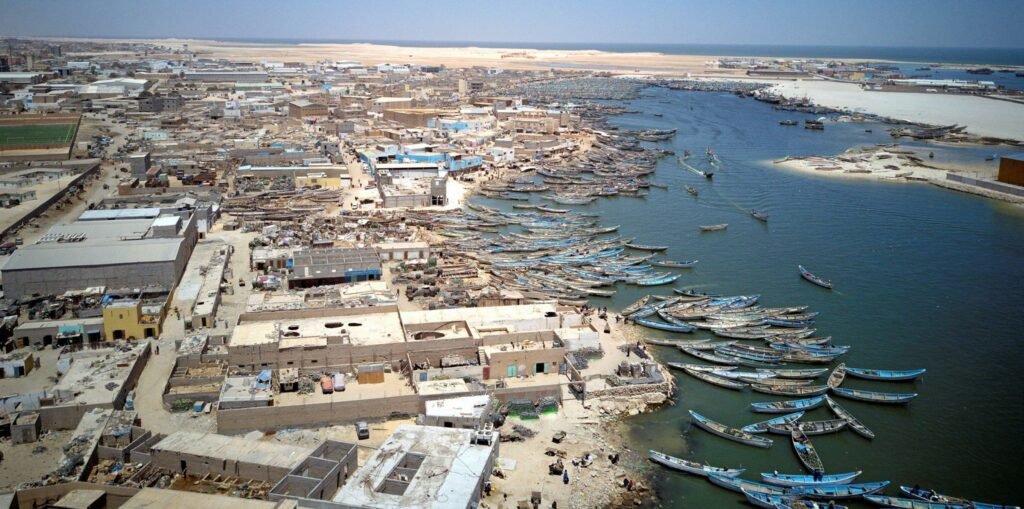
Why is Nouadhibou worth a visit?
No mass tourism here. Everything is raw, sincere and authentic. You stroll between the colorful boats, watch the fishermen reeling in their nets, and within minutes of chatting, you’re invited to share a meal. This is Mauritanian hospitality.
Must-see experiences
The fishing port is a spectacle in itself. The atmosphere is electric when the fishermen return with their catch. The fish market, meanwhile, is a veritable festival of colors and smells, a must-see.
Looking for wilderness? Head for Baie du Lévrier and enjoy a pleasant outing at sea, fishing or simply contemplating migratory birds. You’ll come across pelicans, flamingos, spoonbills and even dolphins if you’re lucky**.**.
Cap Blanc is another facet of Nouadhibou. A spectacular end of the world, where cliffs plunge into the Atlantic, and home to one of Africa’s last colonies of monk seals.
And if you like water sports, you’ve come to the right place. Conditions in Nouadhibou are ideal for surfing and kite-surfing. Few people, just you, rough waves and a constant wind. Everything you need for an unforgettable session.
Why choose the Hôtel Prestige?
If you want to discover Nouadhibou without worrying about organization, we’ll take care of everything. A desert excursion, a fishing trip, a good address for dinner? We’ll guide you.
Here, you’ll feel right at home: comfortable rooms, hearty breakfasts, reliable Wi-Fi… everything you need to make your stay a pleasant break.
And best of all, we’re right in the heart of the city. The perfect place to explore without wasting time.
Ready to explore Nouadhibou?
Nouadhibou is a city to be experienced. Desert, ocean, unforgettable encounters… Every day is full of discoveries.
To make the most of it, the Hôtel Prestige is there. A central location, a team who know the region like the back of their hand, and all the comforts you need for a carefree stay.
👉 Get started. Book now and enjoy the Mauritanian experience with complete peace of mind.
📅 Click here to book your room


